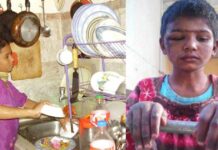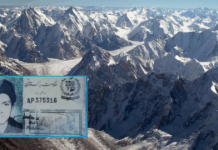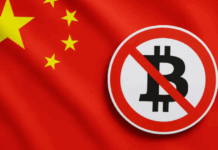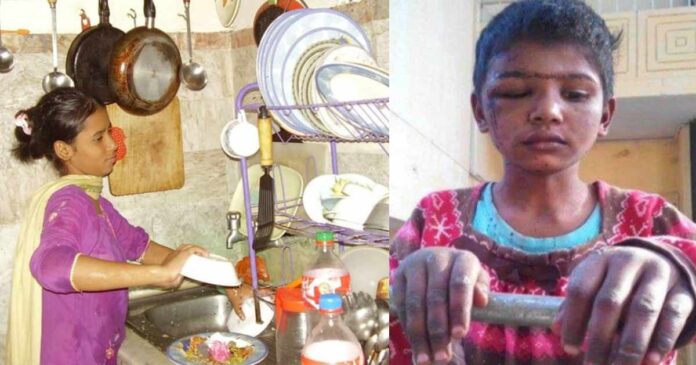In theory, Pakistan seems to be progressive, as the youth is unlearning the cultural narratives and breaking through generational trauma, yet certain sides of the nation seem to be still stuck in the Stone Age (metaphorically).
While we don’t indulge in slavery, we keep underage domestic workers (sometimes children) and treat them as our personal property.
Abuse, sexual violence, mental torture, and financial dependence; you name it, and it is present. Moreover, threats and debt make the domestic labour even more exposed to such exploitation.
What is this if not modern slavery? This is the plight of domestic labour in Pakistan.
Domestic Labour in Pakistan
Employing maids is a very common practice in Pakistan due to the availability of cheap labour. Almost every middle-class household has a maid. In fact, many people even prefer this about Pakistan because they get the freedom of keeping house help without any questioning. Whereas in foreign countries, they are not allowed to do so.
But what happens when there is no one to keep a check on the domestic labour? They are treated worse than animals. It’s not all black and white. Some households treat their workers well and pay them fairly, too, often giving them employment for a lifetime. However, in most cases this isn’t the case.
There are no official contracts, no social security benefits, and often, not even basic minimum wage standards. According to estimates by the International Labour Organisation (ILO), millions of people, especially women and children, are employed as domestic workers in Pakistan.
However, without formal recognition or legal protections, they are easily exploited. Often, workers face abuse for small mistakes, such as accidentally breaking something or not doing the work up to the standard of the employer. They are burned, harassed, starved and sometimes meet tragic ends like death just because their employers wanted to “teach them a lesson.”
Women and Children are the Major Sufferers
The majority of domestic workers are women and girls. Many are single mothers, widows, or young daughters from poverty-stricken areas who migrate to cities in the hope of earning a living. Some are as young as eight or ten, being illegally employed and out of school while working in conditions that rob them of a normal childhood.
This is often a result of a capitalist system that values profit and cheap labour over the well-being and rights of people.
Tragic incidents, such as the case of Zohra Shah, the 8-year-old domestic worker who was tortured and killed in Rawalpindi in 2020, shook the conscience of the nation but only briefly. Public outrage dies down, but systemic issues remain.
Pakistan’s high adult unemployment and underemployment rates are a factor in the country’s high child labour rates. In 2020-2021, Pakistan’s unemployment rate was 6.3%. This just leaves people little to no option but to send their young ones to houses as labour just to earn some money to survive.
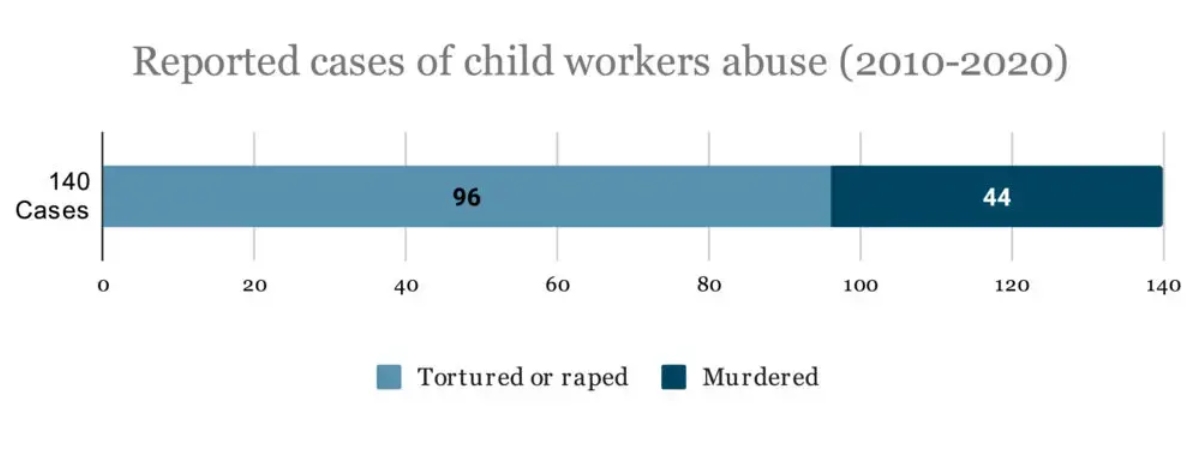
Lack of Legal Protection
While provinces like Punjab and Sindh have introduced domestic workers’ laws like the Punjab Domestic Workers Act 2019, their implementation is weak at best. There is little public awareness, even among employers. Many domestic workers are unaware of their rights or too afraid to speak up due to fear of losing their livelihood.
Additionally, there’s no mechanism to monitor working conditions inside private homes, making enforcement practically impossible. Labour inspection in domestic settings is a sensitive topic due to privacy concerns, but that cannot become an excuse for turning a blind eye.
Money and power are the ultimate basis of judgment. Employers get convicted, but often times their punishment is light or little to none and then they are freed with no follow-up.
The Plight of Domestic Workers Must Not be Ignored
The plight of domestic workers in Pakistan is a glaring example of silent suffering. They cook our meals, raise our children, and keep our homes running, yet remain unseen and unheard.
A just society does not just look after its rich; it safeguards its most vulnerable too. It’s important to open our eyes and challenge the system that allows such injustice to prevail; otherwise, we will be raising a society that will be anything but humane.
The abused will become the abuser, and the cycle will never end. The choice is in our hands.
Stay tuned to Brandsynario for the latest news and updates






